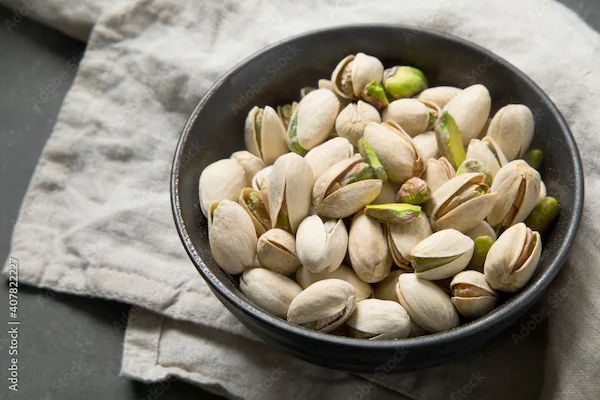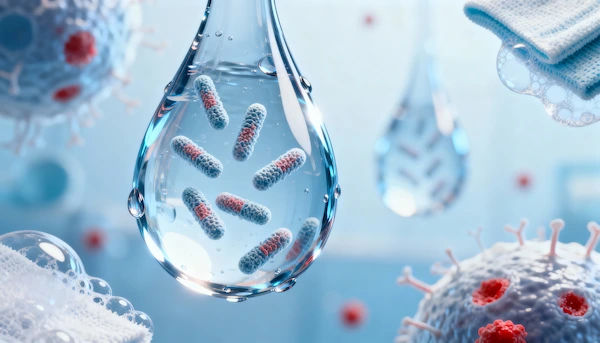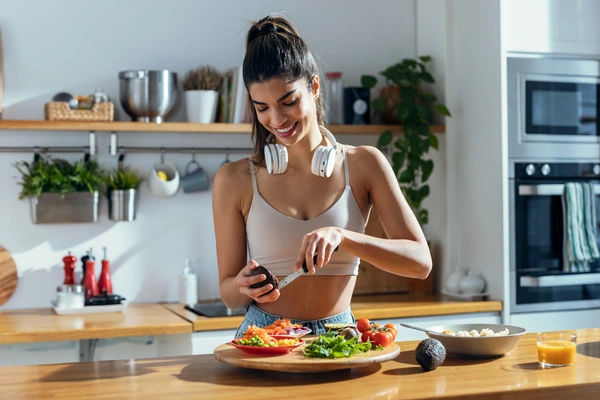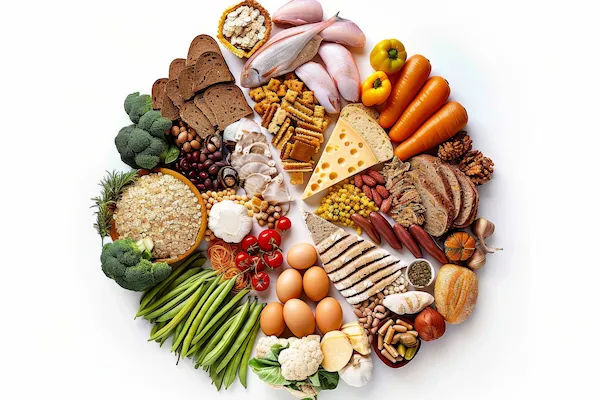The Ultimate Guide to Loose Motions: Dos and Don'ts for Quick Recovery
Know all about the loose motions, what it is, things to follow and things not to follow to stop the loose motion and advanced recovery tips and more.

Written by Dr. J T Hema Pratima
Reviewed by Dr. D Bhanu Prakash MBBS, AFIH, Advanced certificate in critical care medicine, Fellowship in critical care medicine
Last updated on 13th Jan, 2026

Introduction
That sudden, urgent rush to the bathroom is unmistakable. Loose motions, or diarrhoea, can strike unexpectedly, turning your day upside down. Whether it's a mild stomach bug or a more persistent issue, knowing what to do and what not to do is crucial for a swift and comfortable recovery.
This common digestive woe occurs when your intestines don't properly absorb fluids, or they produce extra fluid, resulting in watery, unformed stools. While often unpleasant, most cases are manageable at home with the right knowledge. This comprehensive guide will walk you through the essential dos and don'ts for loose motions, from immediate hydration strategies and the best foods to eat to critical warning signs that require a doctor's attention.
What Are Loose Motions? Understanding the Basics
Loose motions, clinically known as diarrhoea, refer to the passage of three or more loose or liquid stools per day. It's your body's rapid evacuation mechanism to flush out harmful pathogens, toxins, or irritants from your digestive system. While disruptive, it's often a sign your body is working to protect itself.
Consult a Gastroenterologist for Personalised Advice
Common Causes of Diarrhoea
Most bouts of acute diarrhoea are caused by infections.
Viral gastroenteritis, often called the "stomach flu," is a leading culprit, with norovirus and rotavirus being common offenders.
Bacterial infections, often from contaminated food or water (e.g., E. coli, Salmonella), and parasitic infections like Giardia can also be to blame.
Other frequent causes include food intolerances (e.g., lactose intolerance), reactions to medications like antibiotics, and underlying chronic conditions like Irritable Bowel Syndrome (IBS).
Key Symptoms to Watch For
It includes:
Watery stools with abdominal cramping
Bloating
Nausea and an urgent need to go to the bathroom.
A mild fever can sometimes accompany an infection.
Hydration is a key symptom
The Immediate Dos: Your First 24-Hour Action Plan
The immediate plan should include:
Do Prioritise Hydration Above All Else
When you have diarrhoea, you lose vast amounts of water and electrolytes (essential salts like sodium and potassium). Replenishing these is the single most important step. While water is good, it doesn't replace electrolytes. An Oral Rehydration Solution (ORS) is the gold standard.
How to Prepare an Oral Rehydration Solution (ORS)?
You can buy ORS packets from any pharmacy. Simply dissolve the powder in the recommended amount of clean, boiled water.
If you can't access a pre-made packet, you can make a simple homemade rehydration drink:
Mix ½ teaspoon of salt and 6 teaspoons of sugar into 1 litre of clean, boiled water.
Sip this solution throughout the day.
Alternative Hydration Options if ORS is Unavailable
Clear broths, coconut water (low in sugar varieties), and diluted fruit juices (like apple juice) can help. However, they are not as effective as a properly balanced ORS for severe fluid loss.
Do Start with a Bland Diet (The BRAT Diet)
Once you can keep liquids down, introduce bland, easy-to-digest foods. The classic BRAT diet, Bananas, Rice, Applesauce, and Toast, is a good starting point.
* Bananas are rich in potassium, which is lost during diarrhoea, and their pectin helps firm up stools.
* White rice and toast provide binding bulk and are low in fibre, which can be irritating.
* Applesauce provides pectin and energy. Other good options include plain crackers, boiled potatoes, and steamed chicken.
Do Get Plenty of Rest
Your body is fighting an infection and working hard. Physical exertion can worsen dehydration and delay recovery. Allow your energy to be directed toward healing by resting as much as possible.
The Critical Don'ts: What to Avoid When You Have Diarrhoea
Don't Consume These Irritating Foods and Drinks. Your gut is inflamed and needs gentle handling.
Avoid:
Dairy products (except yoghurt): Many people develop temporary lactose intolerance.
High-fibre foods: Whole grains, raw vegetables, and nuts can accelerate bowel movements.
Fatty, greasy, or fried foods: These are difficult to digest and can worsen cramps.
Spicy foods: They can further irritate the digestive lining.
Caffeine and alcohol: Both are diuretics, which promote fluid loss and worsen dehydration.
Sugary drinks and sodas: High sugar content can draw water into the intestines, exacerbating diarrhoea.
Don't Overuse Anti-Diarrheal Medications
Medications like loperamide can provide short-term relief, but they work by slowing your gut motility—essentially trapping the pathogen inside. For infectious diarrhoea, it's often better to let your body flush it out. Use these only for comfort and never for a high fever or bloody diarrhoea. Consult a doctor or pharmacist before use.
Don't Ignore Signs of Dehydration
This is the most dangerous complication. Seek immediate medical attention if you notice:
Dark yellow urine or no urination for 8+ hours.
Extreme thirst, dry mouth, or sunken eyes.
Dizziness, lightheadedness, or weakness.
Skin that doesn't bounce back when pinched.
Beyond the Basics: Advanced Recovery Tips
Incorporating Probiotics for Gut Health
While the BRAT diet is great initially, it lacks the good bacteria your gut needs to repopulate after being flushed out. Probiotics are live, beneficial bacteria that can help restore balance.
Studies have shown that strains like Lactobacillus rhamnosus GG and Saccharomyces boulardii can reduce the duration of infectious diarrhea. Incorporate plain, live-culture yoghurt, kefir, or a probiotic supplement once the acute phase has passed.
The Gradual Return to a Normal Diet
After 24-48 hours of bland foods, you can slowly reintroduce other foods. Start with steamed vegetables, lean proteins like baked chicken or fish, and eggs. Monitor how your body reacts. If a food causes discomfort, pause and try it again later.
When to Stop Home Care and See a Doctor?
While most cases resolve on their own, certain symptoms warrant professional medical advice.
Red Flag Symptoms in Adults
It includes:
* Diarrhoea lasting more than 2 days without improvement.
* Signs of severe dehydration (as listed above).
* A fever of 102°F (39°C) or higher.
* Severe abdominal or rectal pain.
* Stools containing blood or pus.
Red Flag Symptoms in Children and Infants
Children dehydrate much faster. See a doctor immediately if your child:
Hasn't had a wet diaper in 3 hours.
Has a fever above 102°F (39°C).
Has bloody or black stools.
Is unusually drowsy, sleepy, or irritable.
They have a sunken appearance to their abdomen, eyes, or cheeks.
Conclusion
Navigating an episode of loose motions can be uncomfortable, but with the right knowledge, you can manage your symptoms effectively and support your body's natural healing process. Remember, the cornerstone of treatment is diligent rehydration with the right fluids, followed by a gentle, bland diet. Listening to your body and allowing it to rest is equally important.
If your symptoms are severe, prolonged, or include any of the red flags we discussed, do not hesitate to consult a healthcare professional.
Consult a Gastroenterologist for Personalised Advice
Consult a Gastroenterologist for Personalised Advice

Dr Bhargav Vuppumalla
General Physician/ Internal Medicine Specialist
5 Years • MBBS MD GENERAL MEDICINE
Bengaluru
Apollo Medical Center, Marathahalli, Bengaluru

Dr Harish K C
Gastroenterology/gi Medicine Specialist
15 Years • MBBS MD DM MRCP(UK) (SCE-Gastroenterology and Hepatology)
Bangalore
Manipal Hospital, Bangalore

Dr Harish K C
Gastroenterology/gi Medicine Specialist
15 Years • MBBS MD DM MRCP(UK) (SCE-Gastroenterology and Hepatology)
Bengaluru
Apollo Hospitals Bannerghatta Road, Bengaluru

Dr Rohit Sureka
Gastroenterology/gi Medicine Specialist
15 Years • MBBS, DNB General Medicine, DNB Gastroenterology
Jaipur
Apollo 247 virtual - Rajasthan, Jaipur

Dr. Paramesh K N
Gastroenterology/gi Medicine Specialist
16 Years • MBBS, MS ( General Surgery), DNB ( Surgical Gastroenterology)
Hyderabad
Sprint Diagnostics Centre, Hyderabad




